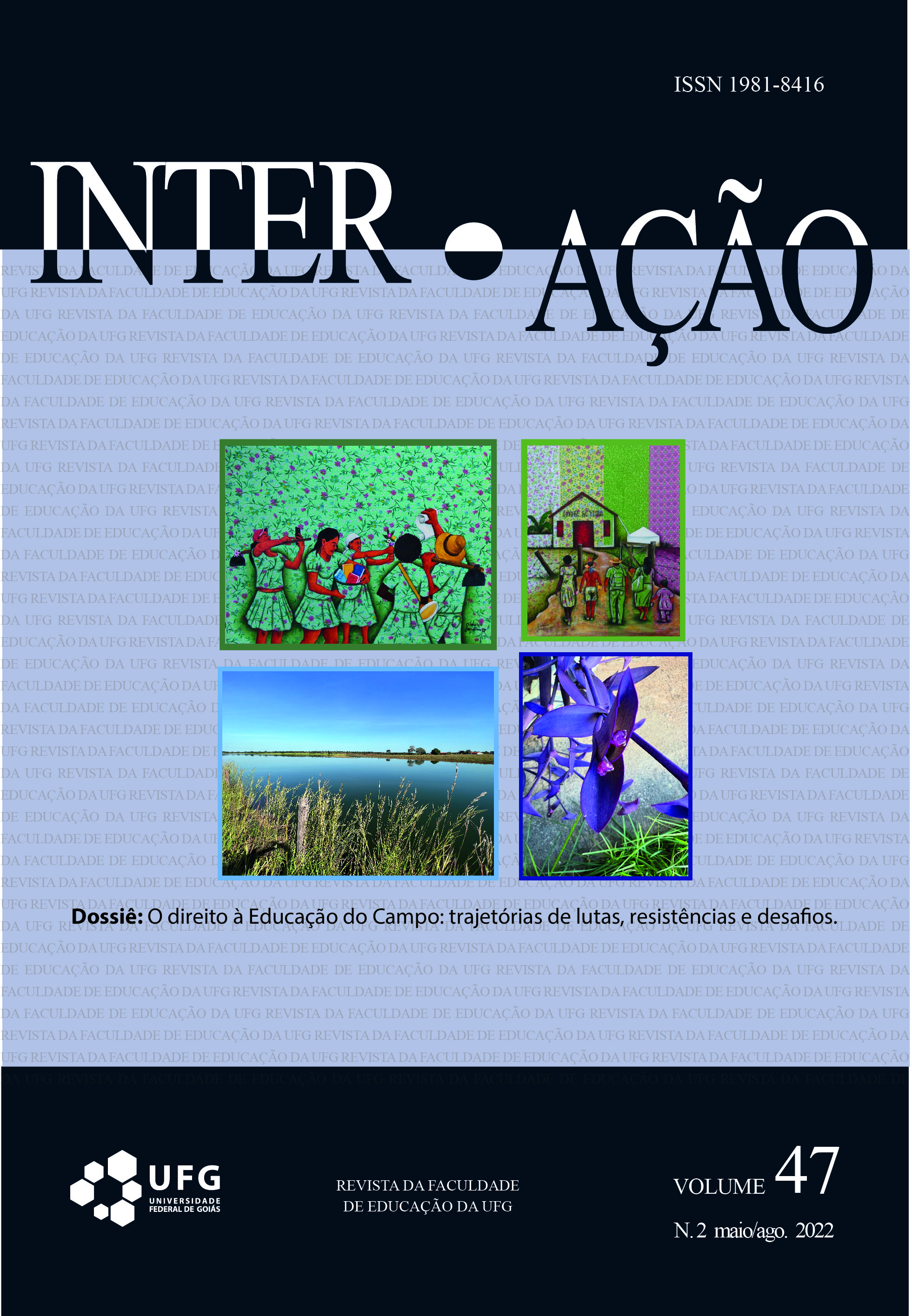YOUTH AGRICULTURAL RESIDENCE OF THE UNIVERSITY OF BRASILIA (UNB): HISTORY, MEMORY, ORGANIZATION AND RESISTANCE OF THE YOUTH OF THE COUNTRYSIDE
DOI:
https://doi.org/10.5216/ia.v47i2.71902Abstract
This article aims to present the experience of the Young Agrarian Residency Program, as a result of the struggle of rural youth to expand formation, organization and resistance strategies, having Countryside Education as a guiding principle. The analysis starts from the implementation of the Program both at a national and local level at Faculdade UnB Planaltina, working in Territorial Centers, where young peasants lived. In the form of synthesis work on the formation and research carried out, the article point out a formative itinerary built, articulating national and local issues that permeate the life of peasant youth. The results showed that the experience left important repercussions on the lives of young people and indicates the need to strengthen youth actions in teaching, research and extension in the FUP/UnB environment.
KEYWORDS: Public Policy. Countryside Education. Youth. Formation.
Downloads
Published
How to Cite
Issue
Section
License
Copyright (c) 2022 Clarice Aparecida dos Santos, Eliene Novaes Rocha, Elisa Guaraná de Castro, Regina Coelly Fernandes Saraiva

This work is licensed under a Creative Commons Attribution-NonCommercial 4.0 International License.
Inter-Ação uses the Creative Commons Attribution 4.0 License for Open Access Journals (Open Archives Initiative - OAI) as the basis for the transfer of rights. Open access means making documents available on the Internet free of charge, so that users can read, download, copy, distribute, print, search, or link to the full text of documents, process them for indexing, use them as input data for software programs, or use them for any other lawful purpose, without financial, legal, or technical barriers.
Authors publishing in this journal agree to the following conditions:
1) Authors retain copyright and grant the journal the right of first publication, with the work simultaneously licensed under the Creative Commons Attribution License, which permits redistribution of the work with attribution and first publication in this journal.
2) Authors are permitted to enter into additional, separate agreements for non-exclusive distribution of the version of the work published in this journal (e.g., for publication in an institutional repository or as a book chapter), with attribution and first publication in this journal.
3) Authors are permitted and encouraged to publish and distribute their work online (e.g. in institutional repositories or on their home page) at any time before or during the editorial process, as this may generate productive changes as well as increase the impact and citation of the published work.















